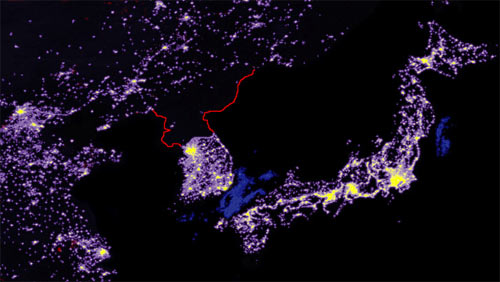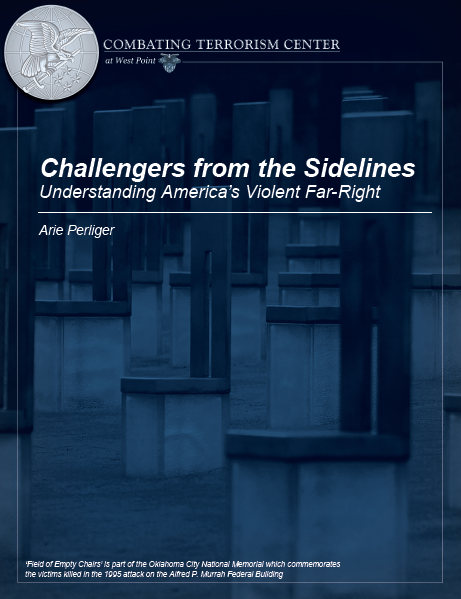A Sustainable National Security Posture?
Wednesday, May 22nd, 2013[ by Charles Cameron — and what about climate change, Mike Mazarr? ]
.
Is there even a Cheney-esque one-percent possibility that 97% of climate scientists (NASA’s estimate) are right?
.
**
I just opened up Michael Mazarr‘s NDU Strategy Study Group report, Discriminate Power: A Strategy for a Sustainable National Security Posture. It’s quite far from my usual apocalyptic and more generally religious interests, but he and I once co-led a Y2K scenario role-playing game at the Center for Strategic and International Studies, so I have a friendly interest in what he’s up to.
What interested me next, though, was the overview to their report that Mazarr and company present in their Introduction. Their purview:
In the coming decade, the constraints on U.S. foreign and defense policy — fiscal, social, Geopolitical — are likely to intensify. At the same time, the security environment is evolving in ways that pose a more diverse array of risks, threats and opportunities. While foreign threats have dominated national security planning in the past, for example, future wars may more typically involve nontraditional foes and means threatening the homeland. This will change how we perceive and provide for national security, even as we confront new constraints.
This paper summarizes the work of a study group chartered to assess strategy under austerity for the next ten years. A core conclusion was that the United States is buying systems, forces and capabilities increasingly mismatched to the challenges, threats, and opportunities of the emerging environment. Military power, for example, cannot resolve many of the most complex and pressing challenges we confront — and yet our investments in national security remain vastly over-weighted to military instruments. The most likely threats to the U.S. homeland will come from nontraditional challenges such as biological pathogens, terrorism, cyber, and financial instruments, and yet resources for these issues remain minimal compared to traditional military instruments. At the same time, on our current trajectory, we will end up with a national security establishment dominated by salaries, health care, retirement costs, and a handful of staggeringly expensive major weapons systems. We are spending more and more to get less and less, in terms of relevant tools and influence.
There’s some ambiguity in here. There’s a segue from “foreign threats” to “future wars” without so much as a hiccup — but the actual threats our National Security strategy will need to address are presented as “nontraditional challenges such as biological pathogens, terrorism, cyber, and financial instruments”.
That’s a far broader array than “future wars” to be sure — but maybe still within the ambit of “foreign threats”. What I’m interested in, in the present context, however, is climate change. And unless my .pdf search function is deceiving me, I can find no mention of either “climate” or “warming” in the entire report.
**
Compare these Remarks by Tom Donilon, National Security Advisor to the President At the Launch of Columbia University’s Center on Global Energy Policy from a month ago:
The national security impacts of climate change stem from the increasingly severe environmental impacts it is having on countries and people around the world. Last year, the lower 48 U.S. states endured the warmest year on record. At one point, two-thirds of the contiguous United States was in a state of drought, and almost 10 million acres of the West were charred from wildfires. And while no single weather event can be directly attributed to climate change, we know that climate change is fueling more frequent extreme weather events. Last year alone, we endured 11 weather-related disasters that inflicted a $1 billion or more in damages – including Hurricane Sandy.
Internationally, we have seen the same: the first twelve years of this century are all among the fourteen warmest years on record.
Or the White House’s National Security Strategy of 2010:
Climate Change: The danger from climate change is real, urgent, and severe. The change wrought by a warming planet will lead to new conflicts over refugees and resources; new suffering from drought and famine; catastrophic natural disasters; and the degradation of land across the globe. The United States will therefore confront climate change based upon clear guidance from the science, and in cooperation with all nations — for there is no effective solution to climate change that does not depend upon all nations taking responsibility for their own actions and for the planet we will leave behind.
And given what WSJ SWJ calls the Obama administration’s strategic shift to the East — what about Navy Admiral Samuel J. Locklear III?
America’s top military officer in charge of monitoring hostile actions by North Korea, escalating tensions between China and Japan, and a spike in computer attacks traced to China provides an unexpected answer when asked what is the biggest long-term security threat in the Pacific region: climate change.
Harvard’s 2012 Climate Extremes: Recent Trends with Implications for National Security report?
Or the Council for Foreign Relations report, Climate Change and National Security: An Agenda for Action — from 2007?
**
I know, the CIA has (quietly) closed its Center on Climate Change and National Security, although as the NYT’s Green blog told us:
Todd Ebitz, a C.I.A. spokesman, said that the agency would continue to monitor the security and humanitarian challenges posed by climate change as part of its focus on economic security, but not in a stand-alone office.
But if you’re still interested, take a look at The Center for Climate & Security’s page On the Record: Climate Change as a Security Risk According to U.S. Administration Officials.
Their list is far more comprehensive than mine.
Okay. I know Mazarr’s report will have been written to fulfill certain criteria, specified or unspecified, and I’m not the one who set them — but isn’t climate change a part of the context that would need to be addressed, if “how we perceive and provide for national security, even as we confront new constraints” is the topic under discussion?








